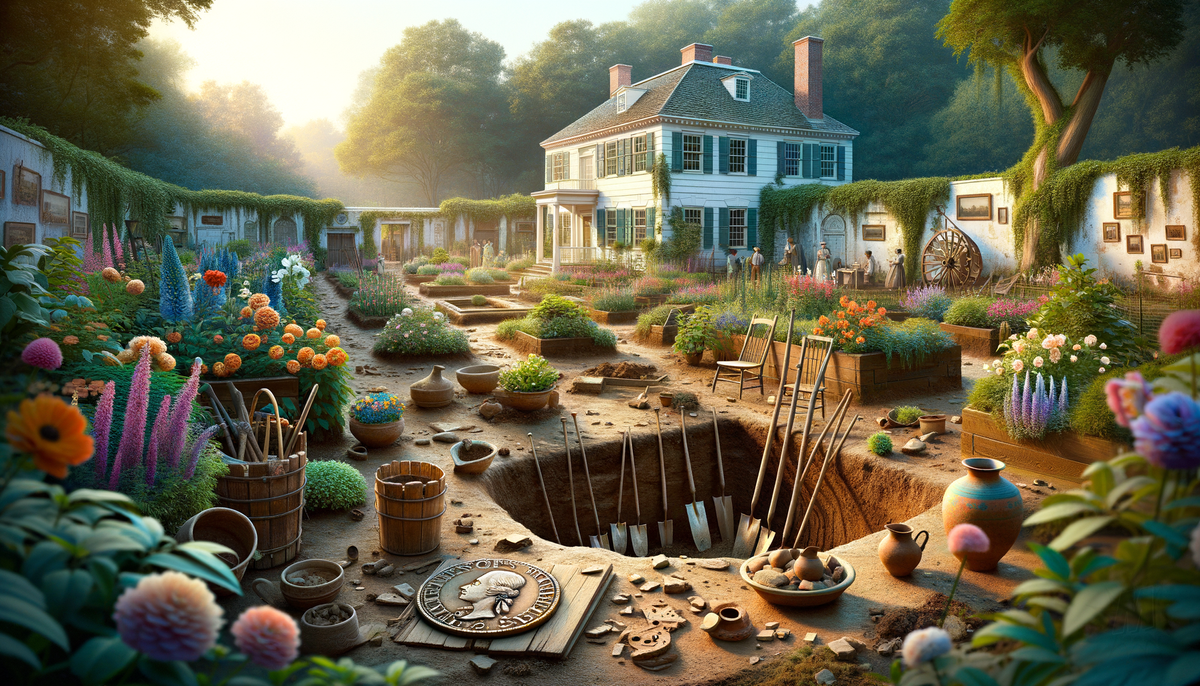Colonial-Era Garden Unearthed in Virginia Reveals Story of Enslaved Gardeners

Archaeologists in Virginia have uncovered a colonial-era ornamental garden in Williamsburg, which once served as a status symbol for the elite. The garden belonged to John Custis IV, a tobacco plantation owner and member of Virginia's colonial legislature, who was also married to Martha Washington, the future wife of U.S. President George Washington. The excavation revealed that the garden, which disappeared after Custis' death in 1749, was about two-thirds the size of a football field and featured exotic plants from around the world.
The findings also highlighted the contributions of enslaved gardeners who maintained the garden. Artifacts such as a pierced coin worn as a good-luck charm by young African Americans and shards of an earthenware chamber pot used by enslaved individuals were discovered. Colonial Williamsburg, the living history museum that now owns the property, is working to reconstruct Custis' home and garden, known as Custis Square. Additionally, the museum is involved in restoring one of the nation's oldest Black churches and what is believed to be the country's oldest surviving schoolhouse for Black children, aiming to tell a more complete story about the era.




